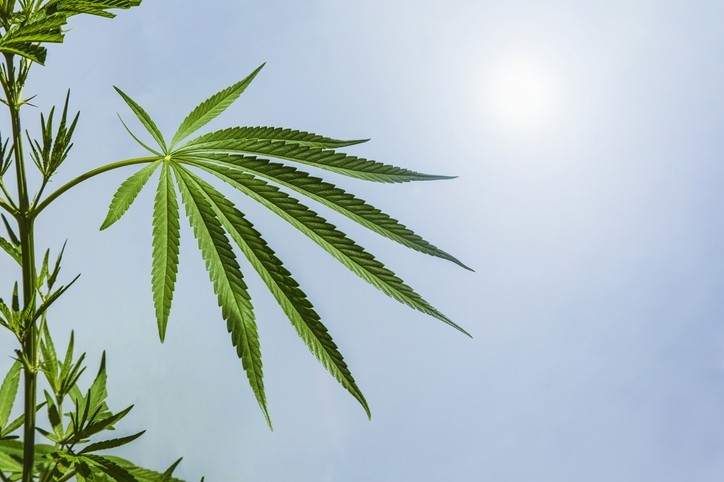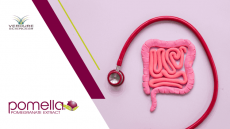Hemp Beverage Alliance sets out to help the category reach its potential

Hemp-derived THC beverages have the potential to get consumers 'high' but are generally considered 'micro-dosed' or 'sessionable' (as with cannabis beverages, the recommendation is to start 'low and slow' for responsible consumption).
Most hemp-derived THC beverages incorporate between two and ten milligrams of THC (for perspective, most states that have legalized cannabis consider ten milligrams to be one serving).
But hemp-derived tetrahydrocannabinol remains in the same regulatory 'gray area' as CBD, says the association: aiming to 'fill this void in regulatory oversight by banding together to form a consortium of companies dedicating to creating a hemp beverage marketplace that is safe, fair, transparent and sustainable.'
The Hemp Beverage Alliance sets out a clear vision for selling beverages responsibly in the US: envisioning a future where ‘safe, low-dose, hemp-derived THC products are available in restaurants, concerts, and other places where alcohol is the only option.’
More than 100 beverage brands, cannabinoid producers, testing laboratories, manufacturing facilities and consulting agencies make up the new organization.
Its priorities will be educating consumers, retailers and distributors about its products; creating best practice guidelines for its members; and working with states to develop suitable and clear regulations for the category.
'The one challenge we don’t have is demand...'
Christopher Lackner, executive director of the new Hemp Beverage Alliance, says that getting hemp and cannabis beverages out to consumers is one of the biggest challenges for the category.
“Cannabis beverages are in high demand. The problem is their accessibility,” he said. “Low-dose beverages don’t do well in dispensaries where consumer decision-making is based on a 'dollars per milligram' equation. Beverages are often not properly displayed in dispensaries, and retail associates/bud tenders are often disinclined to recommend them because of their low THC levels.
“However, when you place a low-dose THC beverage in a conventional retail environment like a liquor store or grocery store, velocity goes through the roof.
“People want these products but they need to be in places where they shop. And not too many people shop in dispensaries."
The simplest solution, he says, is to create a 'Fair Access Beverage Environment' - the idea being that hemp beverages should be found where alcohol is served - such as bars, restaurants, concerts and grocery stores.
The Hemp Beverage Alliance will be at the National Beer Wholesalers Association trade show, October 8-11, at Booth #1623
In a number of states, beer is sold in grocery stores while spirits are sold in liquor stores.
The Hemp Beverage Alliance suggests a similar model: low-dose, hemp-derived THC beverages in conventional retail and higher-dose THC products available in dispensaries (most alliance members fall in the 2mg-5mg bracket).
Alcohol industry provides a ‘model for success’, says the Hemp Beverage Alliance
While it might be tempting to categorize CBD or THC beverages with other cannabis edibles, using the alcohol industry as a model is much more appropriate, says Lackner.
“Beverages are different than other hemp and marijuana products like flower or gummies. Beverages are heavy and take up a lot of space. To be displayed properly, drinks need to be in a cooler, and most dispensaries don’t have the room for them. They ship differently, they store differently, and they are sold differently than marijuana products you’d find in a dispensary.
Cannabis/marijuana beverages use cannabinoids (mostly THC) derived from cannabis/marijuana plants -- Cannabis Sativa L. with a THC concentration that his higher than .3% by weight.
This form of the plant is federally illegal but many states have legalized it. These drinks must be sold in a state-licensed dispensary
Hemp beverages use cannabinoids (mostly THC and CBD) derived from hemp plants — Cannabis Sativa L. with a THC concentration of less than .3% by weight.
These drinks can be sold in conventional stores (grocery, liquor, etc). Many states have regulations surrounding their sale.
“That’s because THC beverages are consumed differently. Generally speaking, these beverages are low-dose and aren’t designed to get you “stoned.” Serving sizes are usually around 2-5 milligrams of THC, making them more “sessionable” so they can be responsibly enjoyed in a way that is similar to beer or wine.
“That’s why these beverages should be on trucks alongside beer, sold in conventional retail so adult consumers can easily access them, and taxed similarly to alcohol so the states have the resources to properly monitor and safeguard the industry.
“Already we’re seeing independent beer distributors carrying these products with great success.”
Federal legalization?
But the biggest hurdle for cannabis beverages, says Lackner, is regulatory confusion: which is leading to reluctance to invest and commit in the category.
On the organization’s ‘to-do’ list is to campaign at a federal level: pointing to a survey from the Pew Research Center which says almost 90% of US adults support the legalization of cannabis.
In January this year, the FDA acknowledged that ‘existing regulatory frameworks for food and supplements are not appropriate for cannabidol’, pledging to work with congress on finding a new way forward.
The Hemp Beverage Association says low-dose, hemp-derived THC beverages should be regulated by the Alcohol Tobacco Tax and Trade Bureau (TTB).
It suggests two separate pathways for hemp-derived CBD and THC:
- 'CBD is a non-impairing compound and should be allowed to be incorporated into food and dietary supplements and be regulated by the Food and Drug Administration (FDA).'
- 'THC has the potential to impair. Beverages containing potentially impairing levels of THC legally derived from hemp should be regulated by the Alcohol and Tobacco Tax and Trade Bureau (TTB).'
It wants to see TTB tasked with developing a regulatory framework for beverages infused with THC derived from hemp; and a tax framework similar to that for alcohol ("This will benefit taxpayers and provide funding for market regulation and oversight," says the organization)
The 2018 Farm Bill saw hemp (defined as Cannabis sativa L.) and derivatives of cannabis with no more than 0.3% delta-9-tetrahydrocannabinol (THC) removed from the definition of marijuana in the Controlled Substances Act. It also preserved the FDA’s authority over hemp products, meaning they must meet any applicable FDA requirements and standards.
The big federal change the alliance hopes to see in the short term is a rise in the limit of THC in hemp from 0.3% to 1.0% via the 2023 Farm Bill (the current 2018 bill expires this year) - ‘this will make life a lot easier for hemp farmers’, says Lackner.
State level regulation: Minnesota’s ‘exemplary’ model
While the federal regulatory path for cannabis products has proved messy, the Hemp Beverage Alliance is encouraged by recent state legislation in Minnesota which it believes can provide a model for the industry.
Minnesota’s regulations set out a clear and logical approach to cannabis beverage consumption, says the alliance. It includes age limits (lower-potency hemp edible products or beverages may only be sold to people aged 21+); serving sizes (containers may not contain more than 2 servings and no more than 5mg of delta-9 THC per serving and 10mg total THC); and clear labelling rules (products must not be packaged in a container that includes a statement, artwork, or design that could reasonably mislead any person to believe that the package contains anything other than an edible cannabinoid product.).
“We see Minnesota as a model that other states should replicate. We feel this is a common-sense approach to protect consumers and encourage responsible consumption," said Lackner.
“In Minnesota, THC-infused products cannot be sold to people under 21 years of age. The amount of THC is restricted to five milligrams per serving. Products must undergo testing for contaminants to ensure product safety.
"These are all exemplary regulations.”











